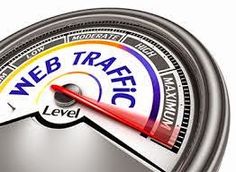Contrary to some reports, SEO is alive and well. While the Big Data and advances in Google algorithms did change the rules of the game, it is still the same old two-pointer:
Optimize your pages and do a hell of an outreach.
The one thing that brings organic traffic is your position in the SERPs, and SEO is what helps you rank high. Neil Patel, one of the leading online marketers, sure agrees:
“93% of online experiences begin with a search engine, 68% of which use Google to do so. Combine that with the fact that the first 5 results in Google get 67% of all clicks, and you get an idea of why SEO is so important.”
In no particular order, let’s take a look at some of the easy and actionable ways you can leverage SEO to gain more traffic to your site:
Improve your keyword research
There are two points to have in mind when you do your keyword research:
- What keywords work for you
- What keywords are popular search terms
This is a bit of a chicken and an egg problem, as you can’t really know what terms work for you right of the bat, and at the same time you can’t go around searching for the most popular terms if you have no idea what you’re looking for.
A good idea is to start with some general keywords that you think work for the particular post you’re trying to optimize, and then you plug these in directly into google search to see what the autocomplete will come up with. In addition, take a look at the related search at the bottom, to see other ways that you can formulate your query.
When you have a general idea of what potential keywords you can use, your next stop would be Google’s keyword planner – a free research tool that can show you what terms are searched, but it is useful only for searches done in Google, not other search engines.
Furthermore, you can use some of the more advanced third party tools to see what kind of content gets a lot of shares and views. Whether you’re into affiliate or ad-sense marketing, the steps are pretty much the same, and the keyword research is a crucial first step.
Tools like Buzzsumo and Ahrefs can also give you some ideas on what already published content performed well, and you can use other keyword finders, such as the one at SEMrush to get more info on your keywords.
Increase your CTR with better titles and descriptions
Even if your page is perfectly optimized from the search engine perspective, you need the people to actually click on your link when it shows up in SERPs. Here’s where a bit of psychology plays a role:
We are naturally inclined to like simple, easy, and quick solutions to our problems. We also like structured information, which is why list types of articles are so popular.
The first three or four words are the most important so try and have your target keyword somewhere in there if possible.
The best titles have either a fear or a benefit component – you need to identify your audience’s pain point or their fear and address these. This is further emphasized with power words like instant, quick, cheap, easy, practical, and authority phrases like guides, how-tos, facts, manuals, and so on.
In general, headlines should be between 8-12 words long (around 60 characters before they are cut off in SERPs). Of course, you can go shorter if you have a killer, effective title.
Meta tags can be further leveraged to increase your CTR by having an enticing description of what the audience gets out of your post, and you can also leverage it further by using power words you didn’t have the chance to utilize in your title.
However, sometimes it’s better to leave it to search engines to pull info for the metatag, or as guys at Moz put it:
“If the page is targeting long-tail traffic (three or more keywords)—for example, with hundreds of articles or blog entries, or even a huge product catalog—it can sometimes be wiser to let the engines extract the relevant text, themselves. The reason is simple: When engines pull, they always display the keywords and surrounding phrases that the user has searched for.”
In addition, you can use rich snippets to give further info in the search results, such as the type of the content, average user rating and number of votes (if applicable).
Find the best posts and promote them
As it’s already established, no SEO will help you if you don’t commit to promotion of your content. The good idea is to find which posts resonate with your already established audience by watching various metrics, like traffic, bounce rate, time spent on page, and so on.
When you have established that you have a potential hit on your hands, you should try and reach out to various bloggers and influencers, and utilize the social media to your advantage. A good practice is to have an established outreach strategy, and put effort into creating solid and honest outreach emails.
Experienced bloggers can smell templates a mile away, and don’t really appreciate them. Other important thing is reciprocity – don’t just ask for favors, you need to provide something of value to these people. Try to cultivate open communication with people in your field, and your outreach campaign will become easier over time.
Another sure-fire way to greatly improve your SEO is to write content that could potentially be scooped by major publications, or do guest posts for them where you promote your content. In general, long- form content fares better, so have that in mind when you decide to go for these big-name sites.
As Tyler Lesile of Influective says:
“There are many different tips and tricks to boost your rankings, but the quickest and cheapest way is to write high quality content that websites like Entrepreneur, Forbes, Business Insider and The Huffington Post want to publish. Do this and watch your name climb rapidly in the rankings.”
Create money keywords for your blog
Besides the keyword research in itself, you should put effort into brand building, as it is one of the most lucrative marketing strategies in the long run. Of course, in order to do this online, you would have to create keywords that are tied to your blog, and which signify what your brand is about and what you stand for.
Put simply, you should focus on the keywords that your audience uses to find you. A number of case studies have shown that eliminating low-performing keywords and focusing on money keywords can increase your traffic by 20%-30%, and more importantly it can increase your conversion rates by more than 200%.
There are numerous other SEO tricks you can use to greatly boost your traffic and get an edge over your competition, but the ones outlined in this article are proven to work great and don’t require a lot of effort to implement.
I urge you to give these techniques a try, and I’m sure that you will see boost to your traffic in no time!





Nice article, no doubt headlines are absolutely crucial in getting people onto your page.
One thing missing is something about the introductory paragraph. This is where most people decide whether to stay or hit the back button.